Agriculture & Environment
Gender Dynamics affect Uptake of Agricultural Technologies – Mak SECA Study
Published
2 years agoon
By
Jane Anyango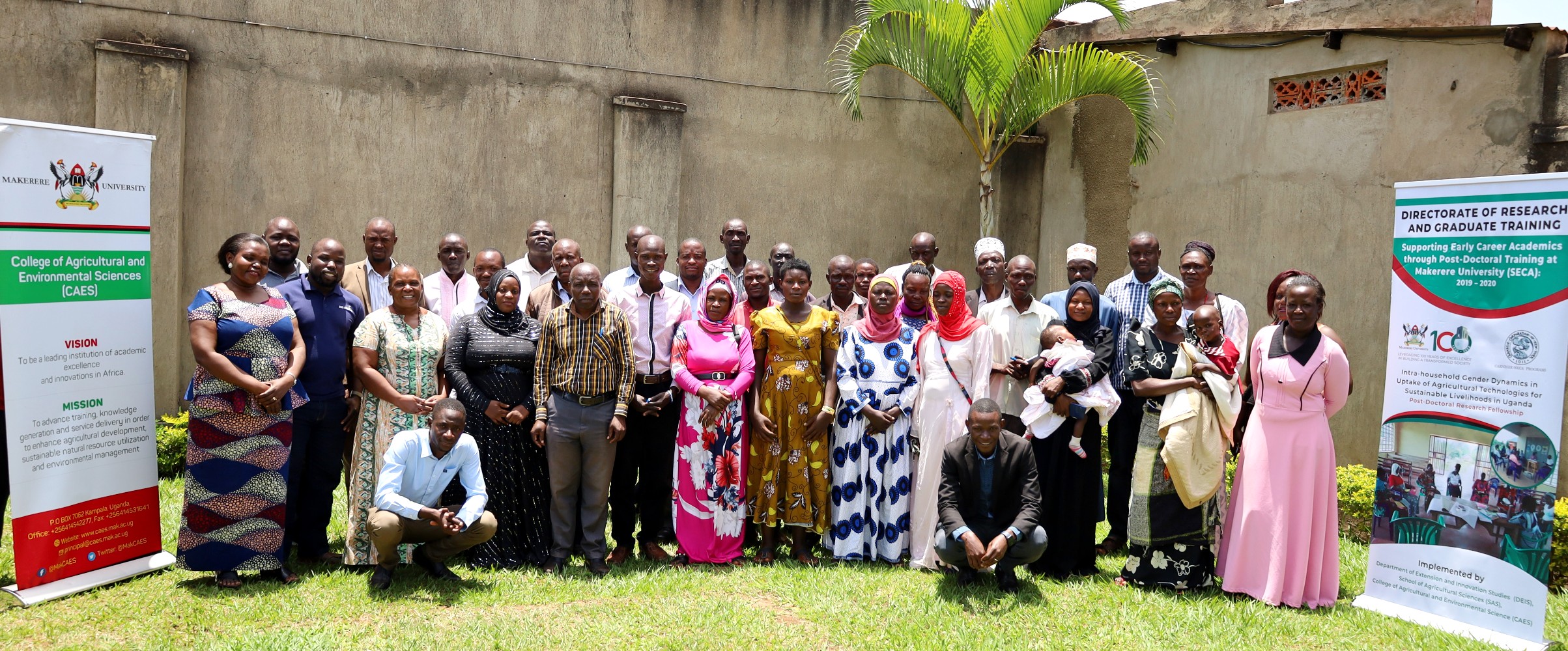
A study conducted by Makerere University researchers in Iganga and Bugiri districts indicates that disparities still exist regarding access and sustained use of improved crop varieties among women and men. The men still dominate decision making power which negatively impacts on the sustained use and uptake of improved crop varieties in the two districts. Gender transformative approaches that consider the interest and needs of both men and women, are deemed fit for the design and implementation of interventions and ensure voices and aspirations of men and women are considered.
Between 2020–2022, researchers from Makerere University Department of Extension and Innovation Studies with support from Carnegie Corporation of New York under the Auspices of the Directorate of Graduate Research and Training programme of Supporting Early Career Academics through Post-Doctoral training at Makerere University (SECA) undertook a study titled, “Intra-household Gender Dynamics in Uptake of Agricultural Technologies for Sustained livelihoods in Uganda.”
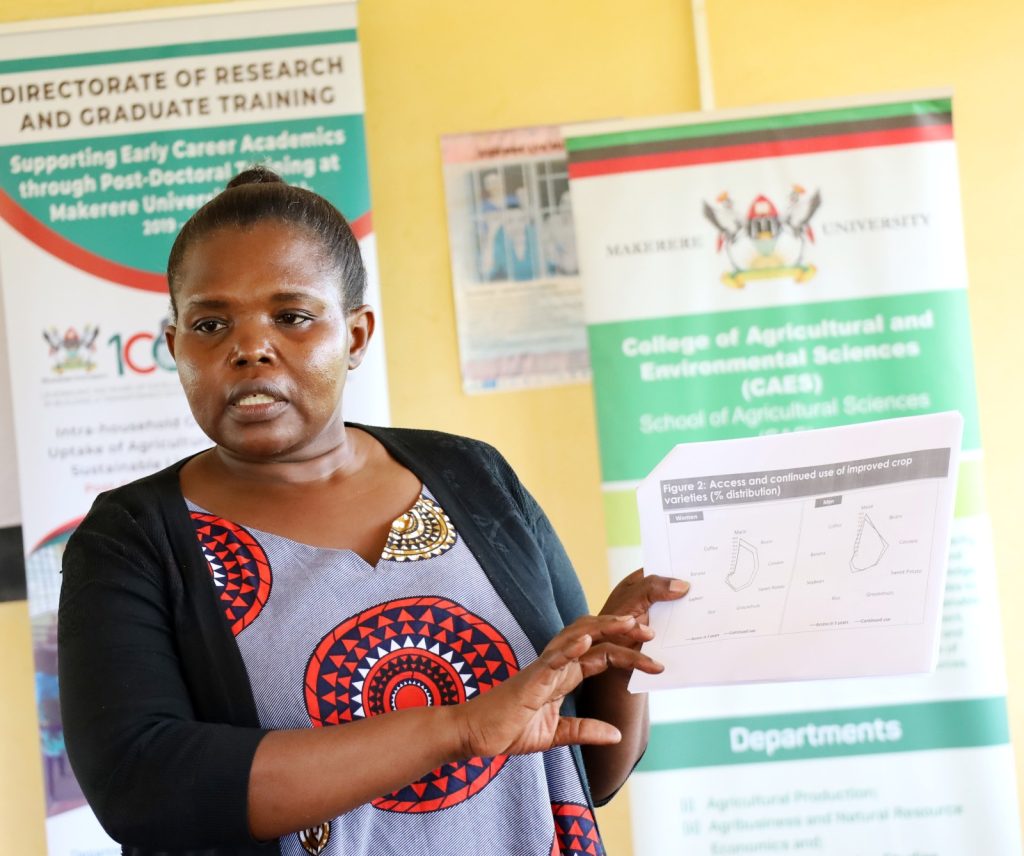
The study was conducted in Nakigo and Nambaale sub-counties in Iganga and Buwunga and Nabukalu sub counties in Bugiri districts. The study areas were selected because of the intensity of interventions by government and non-state agencies in the area aimed at enhancing resilience of the farming systems and increasing agricultural productivity.
The study, aimed to unravel the power dynamics at the household level that influence sustained use of new crop varieties for equitable and sustainable likelihoods in Uganda. The research therefore adopted a gender approach in examining decision making patterns, power relations and negotiation processes at household level and how these influence access to control over new technologies and ultimately sustained use. This was disclosed during the research dissemination workshops conducted on 6th and 7th October 2022 in the study areas that brought together district administrative and technical officers including, production, extension and agricultural officers, district chairpersons, senior production secretaries, farmers and farmer groups, civil society organisations and community-based organisations.
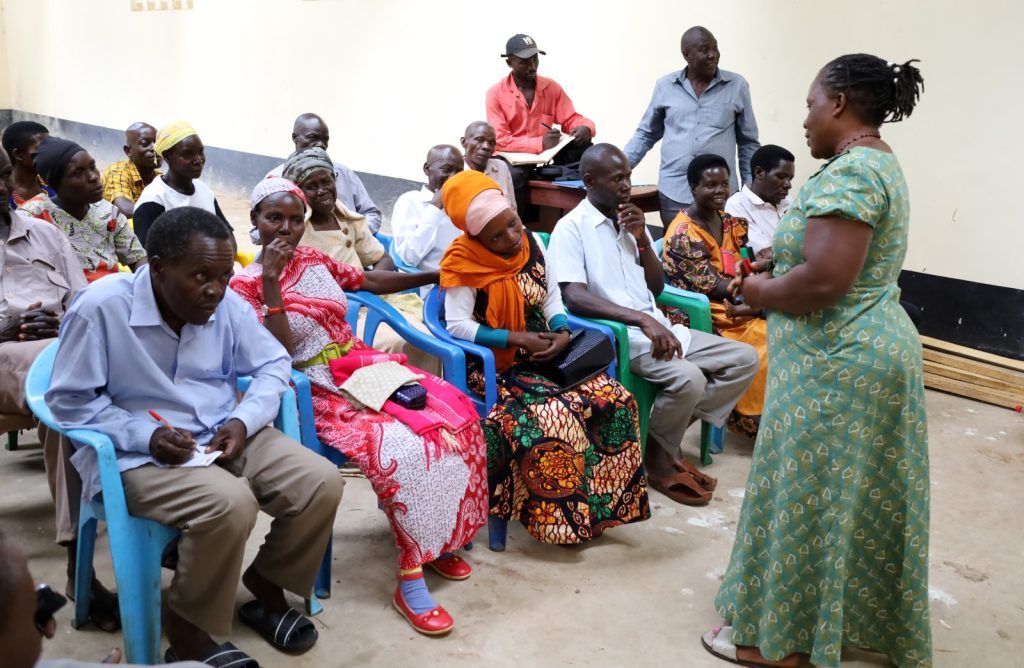
According to the Principal Investigator, Dr. Losira Nasirumbi Sanya, progress towards attaining food security remains a challenge partly due to low use of science and technological innovations developed over time. While sharing the study findings for validation, Dr. Losira explained that the overall objective of the research was to contribute towards promoting sustainable use of new agricultural technologies and innovations through better understanding of the gendered dynamics that enhance access and sustained use as a pathway to transformation of production systems and increasing productivity.
“The specific objectives were to describe the dissemination and use of agricultural technologies in selected districts of Eastern agro-ecological zone of Uganda; analyse the intra-household gender roles and relations in regard to technology access and sustained use within the institution of the household, and quantify the distribution of the decision-making power within dual adult households and how this influences technology uptake and empowerment among women,” she said.
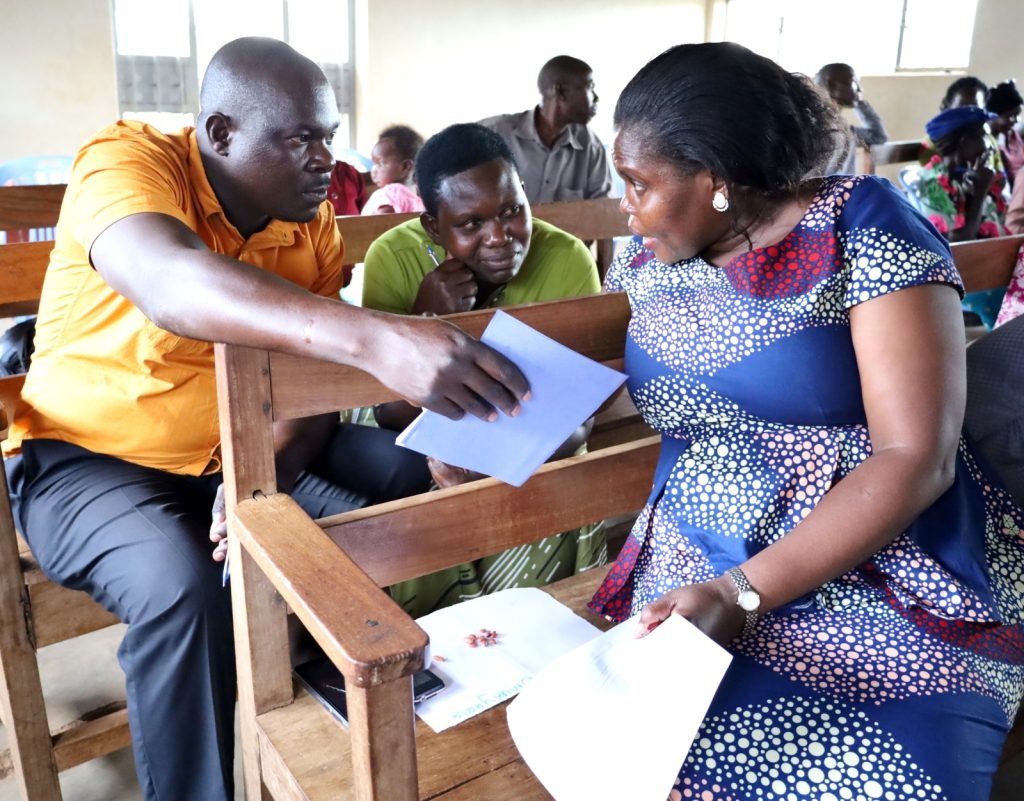
She said data was collected from men and women using survey questionnaires, focus group discussions and in-depth farmer interviews. The findings indicated that farmers were involved in growing at least eight crops, two of the crops purposely for food security, one for cash and the rest for both food and cash. The crops include maize, cassava, beans, sweet potatoes, ground nuts, rice, soybeans, coffee and bananas among others.
The study revealed that in the past five years, men had more access to training on farming and improved seeds from government related experts and NGOs.The study also revealed that though women went to cluster project [ACDP] and accessed improved seed, only a few continued to use such varieties due to several factors.
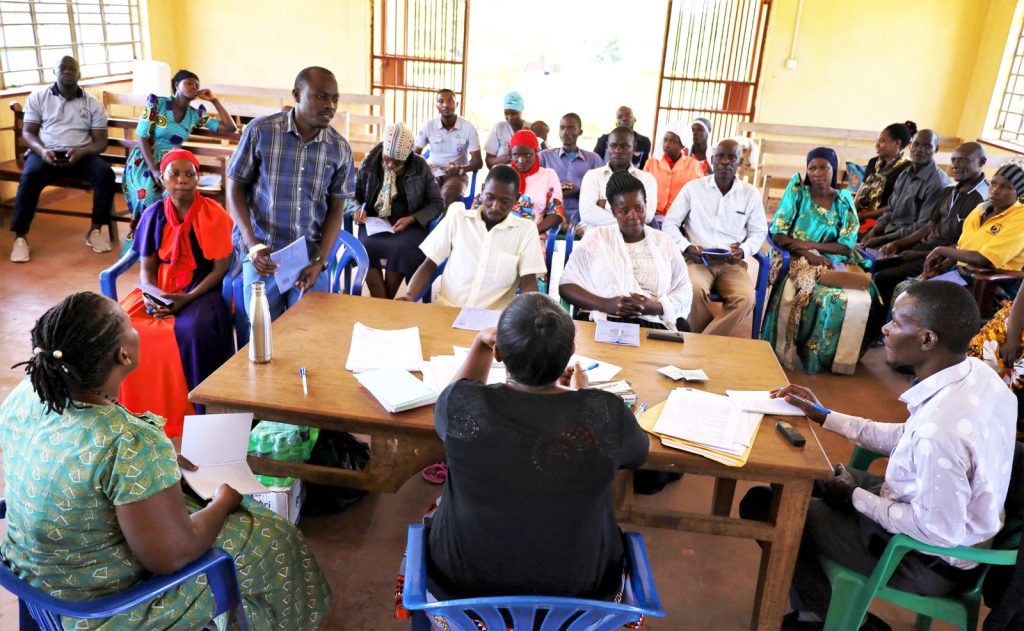
The study also established that households had joint and individual plots for women and men. Joint farms according to this research were preferred by men and women to promote harmony and reduce domestic violence, ease management, sharing resources and labour, timely planting and due to limited land.
Men, the study found, preferred their own plots to meet their diverse demands since some were polygamous, and wanted to fulfil family obligations. On the other hand, it was found that women preferred individual farms for financial independence, control over their income and the need to ensure food security.
When it came to access to farming resources such as land, fertilizers, herbicides and seeds, the study indicated that men had more access but women were mostly involved in providing farm labour for planting and weeding.
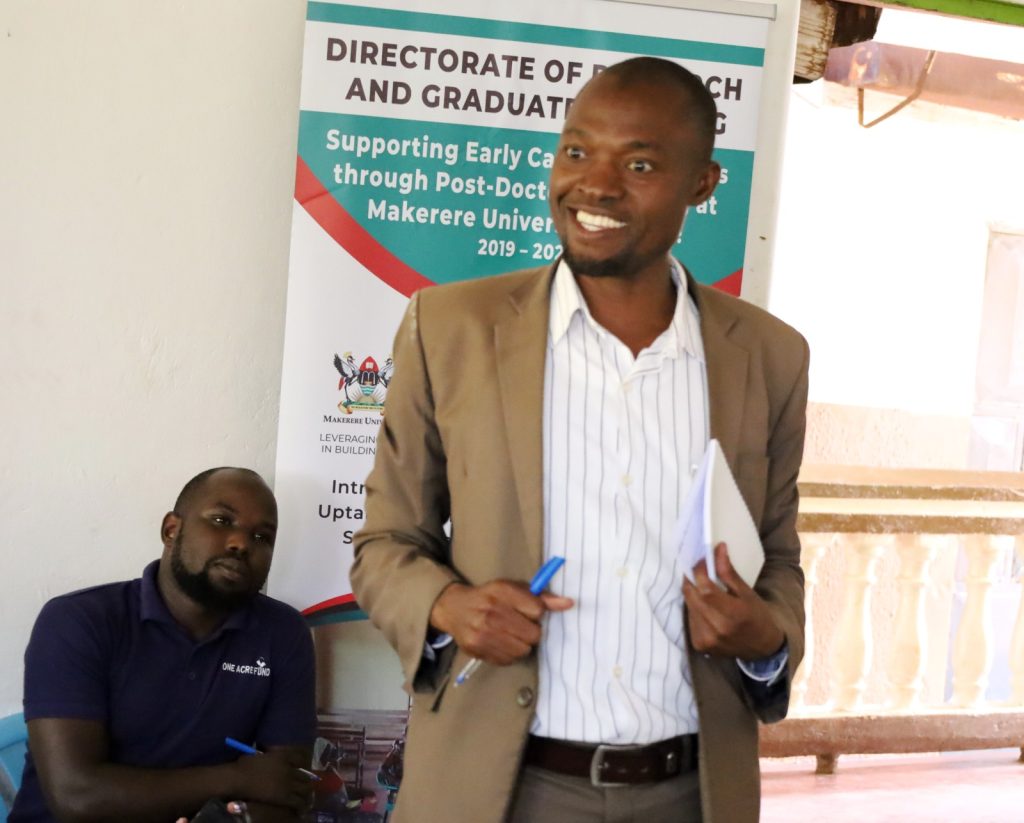
Findings on the intra-household decision making power indicated that 62% of women accorded themselves a high score of having more decision making power than what men scored them in relation to their input to decision dimensions related to asset ownership and use, productive decisions, use of labour (hired and family), marketing, financial time allocation and access to trainings, extension and group membership. However, 29% of the women gave themselves a lower score than their spouses scored them across the different decision dimensions. The study found perfect agreement in the scores assigned by men and women in only 9% of the households. “Decision making power is directly linked to one’s ability to make choice and action on that choice,” said the PI. “A mismatch between actual and perceived empowerment in decision making signals opportunities for creating awareness among farming communities if we are to achieve the intended goal of equitable access and outcomes.”
The study revealed that the disparities in decision making power affected the use of improved technologies and productivity.
“Women with high decision making power (empowered) were more likely able to sustain use of improved varieties than those with lower scores.Those with low decision making power were highly associated with low use of improved varieties. Those with the ability to make decisions and even when closer to extension services were able to grow more improved varieties though high decision making power was negatively associated with the number of improved varieties grown. This illuminates the fact that women’s empowerment in decision making has potential to contribute to closing the gender gap in sustained use thus the need to be more intentional about women’s participation, decision making and agency in development interventions if we are to achieve greater impact in sustained use of agricultural technologies towards better livelihoods,” Dr. Losira explained.
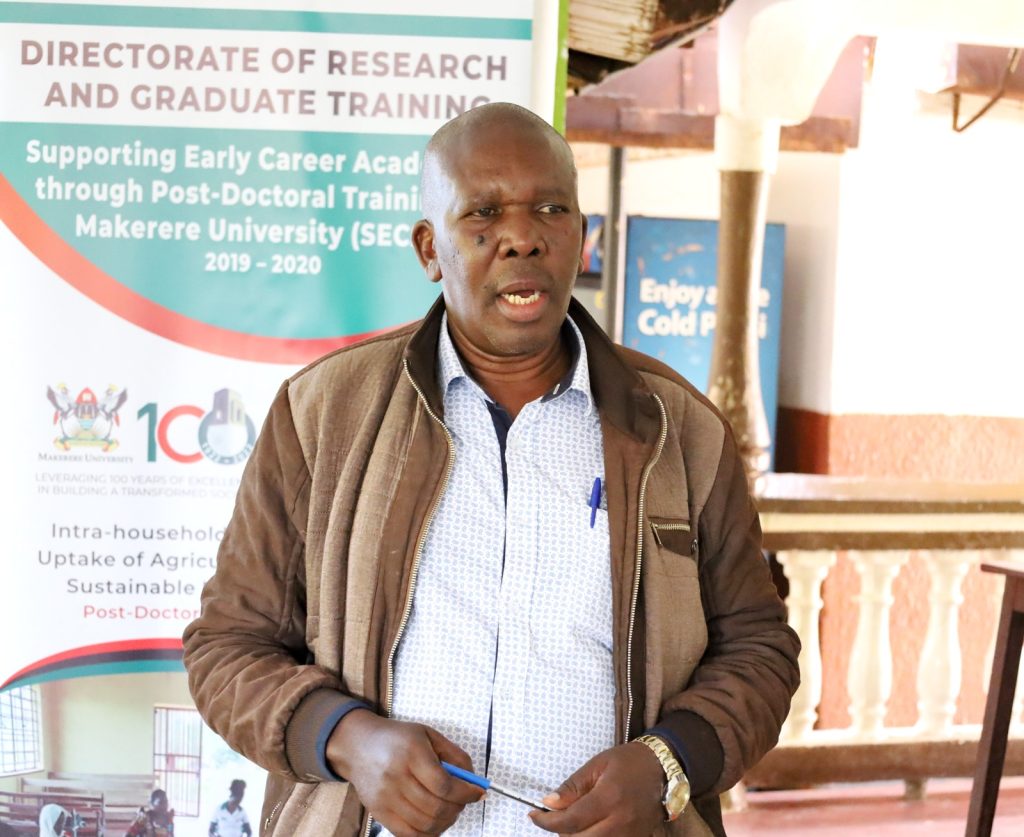
During the dissemination workshop, the District Agricultural Officer, Iganga, Mr. Bazalaki Sully Nantatya said, the research has been of great value and has unearthed the dynamics in the communities in regard to gender relations, decision making and uptake of technologies.
He reported that technology uptake in Iganga district has been good because of the capacity building initiative undertaken by a number of partners and projects both through government and non-state actors.
“This research has revealed that adoption of improved technologies has been embraced which has led to increased yields and farmers are very appreciative. Since the start of this research, we have observed that gender relations have improved among participating households when it comes to working in gardens and decision making and that now a wife and husband have come closer and jointly taking lead in implementing farming activities right from planting to marketing. This has been made possible by the approach adopted in this research of having both spouses involved in all activities. Farmers are also realising the use of improved technologies which they feel must be sustained. As a district, we are thinking of enhancing input delivery system to sustain the new interventions and all these have been revealed during the dissemination workshop which has pointed out where things are working out well and not,” he said
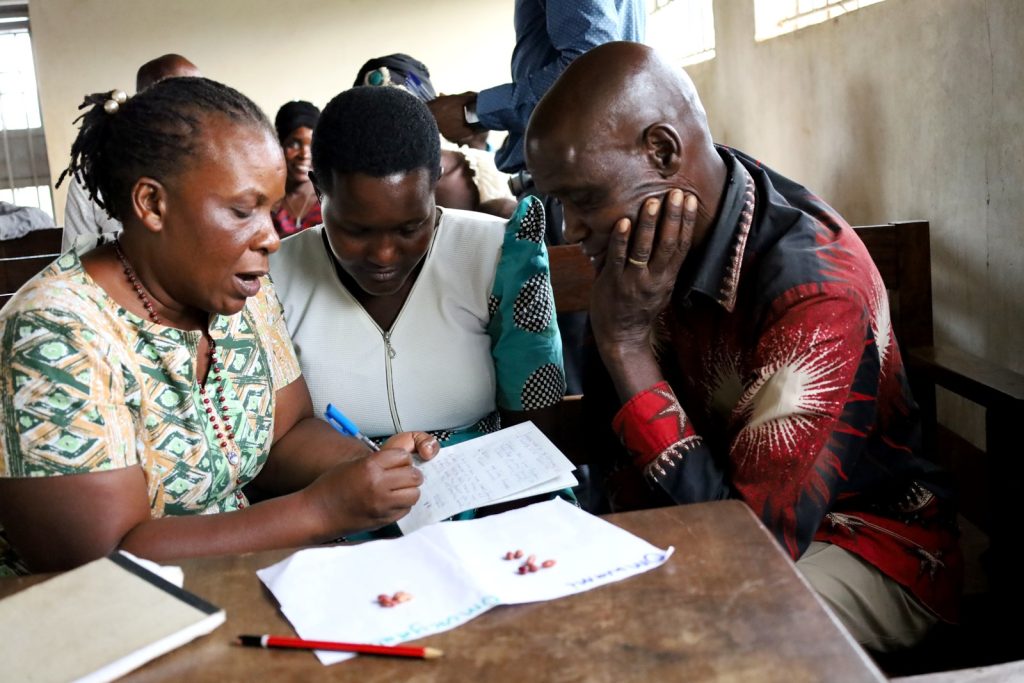
The Agricultural Officer, Nambaale Sub County, Gwahaba Richard said farmers easily take up new technologies especially to increase yields but hardly sustain their use.
“We need to wake up as extension officers and district partners and concentrate on gender issues so that men, women and children at the household level embrace these technologies and work together to sustain them,” he said.
Representing the District Chairperson Iganga, the Vice Chairperson, Ali Mukacha appreciated Makerere University for choosing Iganga as a site for the research saying, the study was in line with the government strategy of modernising agriculture and improving farmers’ livelihoods from a peasantry to middle income earners by the year 2030.
He said Nambaale Sub County has been one of the model sub-counties in the district that has participated in many interventions. He pledged the district support towards any research program in the area.
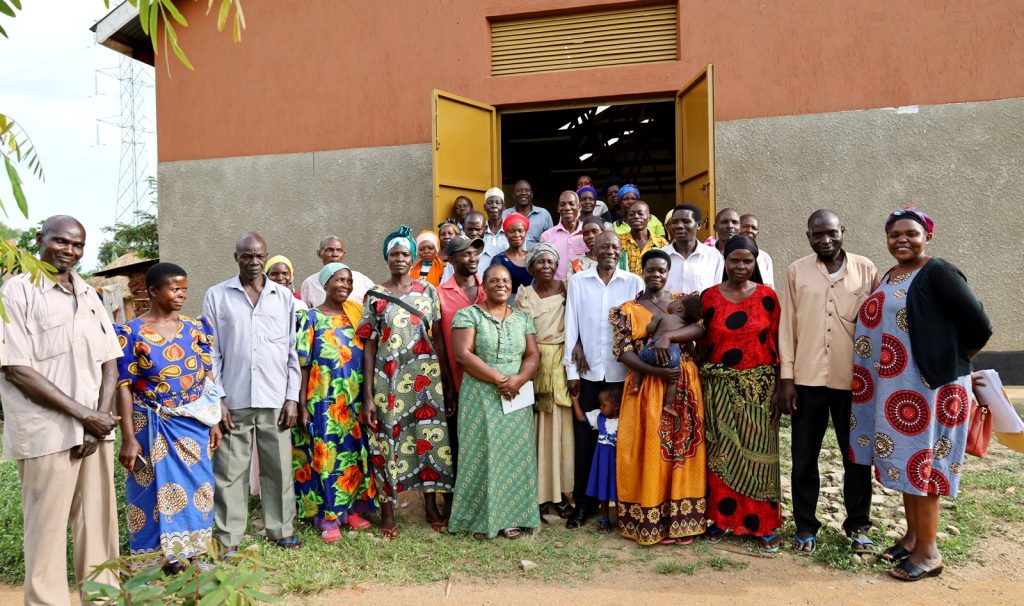
Rebecca Naigaga, a farmer from Iganga districts appreciated the research.
“I have learnt a lot that a husband and wife need to sit together during the planting season and agree on how to rent land, its size, what crops to plant. Then during harvest, we need to agree on what amount to sell and leave for food and what to sell for fees. The other, I have learnt is that, men have more access to land but as women we can also hire,” she noted.
Elias Mutyaba from Nambaale Agro business appreciated the study for changing his mindset and called upon farmers to adopt modern farming practices.
“This time I have changed my attitude. I was so piteous of myself that I was unemployed but with this workshop, I have learnt that farming is also a business where I can earn money. I call upon my fellow farmers to embrace new varieties and use of fertilisers to improve the yields,” he said.
You may like
-
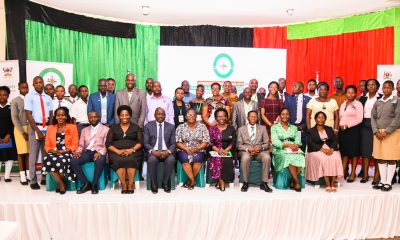

Mak develops new model to aid teaching of Maths in Lower Secondary Curriculum
-
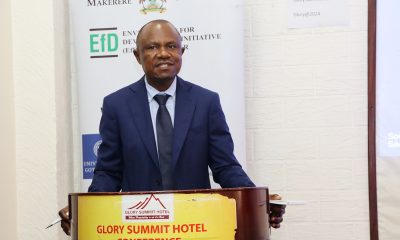

EfD-Uganda Holds Inaugural AGM: Celebrates Milestones and Outlines Future Plans
-
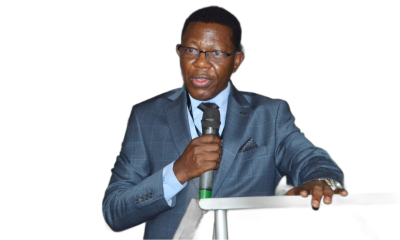

Prof. Buyinza Mukadasi Appointed Acting DVC Academic Affairs
-
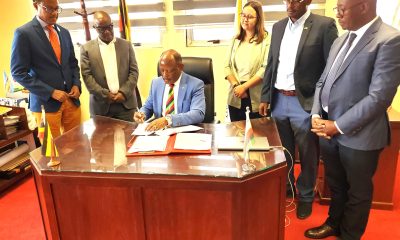

Mak, Oregon State University Sign Cooperation Agreement
-
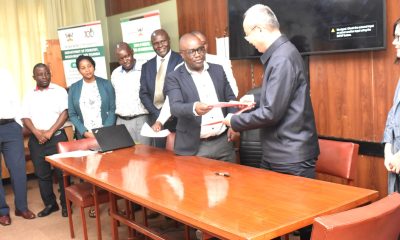

Mak, Nanjing University of Information Science & Technology Sign Collaboration Agreement
-
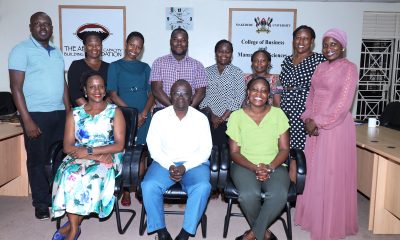

Dept. of Population Studies Staff Complete Training on Doctoral Supervision
Agriculture & Environment
FoodLAND Project Research Dissemination: Nakaseke District Farmers Sensitized on Modern Agricultural Practices & Proper Nutrition
Published
4 days agoon
July 23, 2024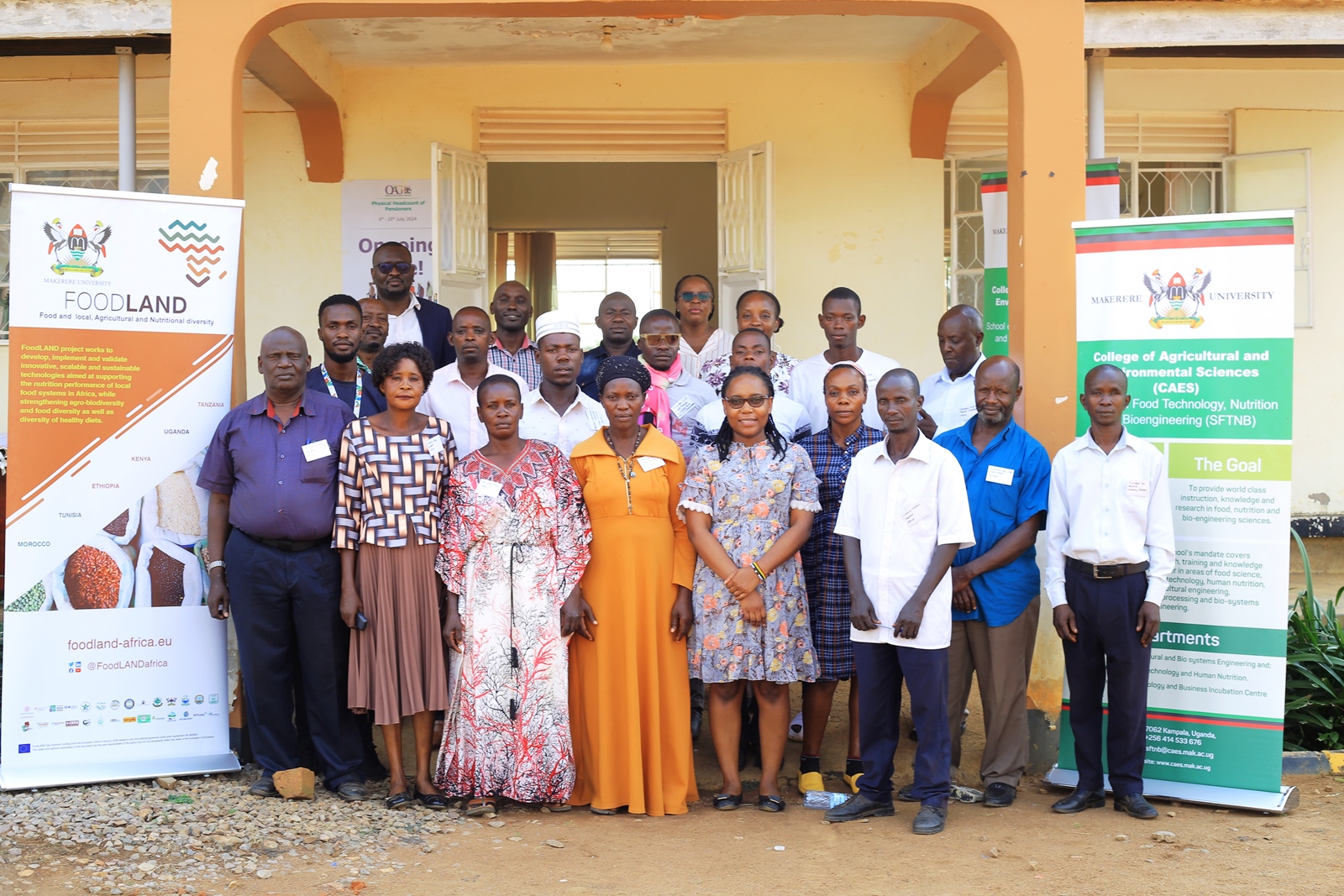
******Food and Local, Agricultural, and Nutritional Diversity (FoodLAND) project aims to develop, implement and validate innovative, scalable, and sustainable technologies aimed at supporting the nutrition performance of local food systems in Africa, while strengthening agro-biodiversity and food diversity as well as diversity of healthy diets.
Experiences of Nakaseke District farmers
Farmers in Nakaseke District are indebted for the support and training received from the FoodLAND Project. Although many had been engaged in the activity, they lacked knowledge and skills of modern farming. Connected to FoodLAND through VEDCO, a non-governmental and not for profit agricultural organization, the farmers have acquired skills on value addition, precision irrigation/fertigation, smart storage systems, gardening and hydroponics systems, biodegradable mulching, precision crop protection systems, precision harvesting systems and agro-ecological intensification practices.
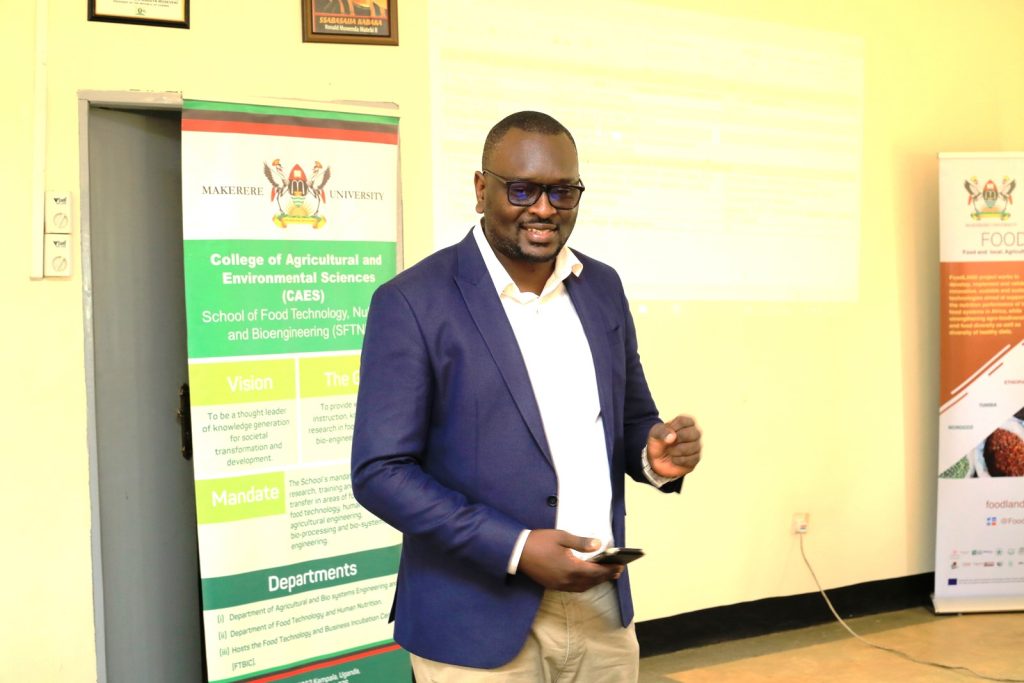
According to Ms. Nakawuba Sarah, a widow and tomato farmer in Kapeeka Sub County, Nakaseke District, the knowledge acquired has enabled her to expand, and gain more profits. “I extend my gratitude to FoodLAND and the funders of the project. The knowledge acquired over time has enabled me to expand my farm and earn more money. Due to ignorance, we used to be exploited – people would buy our products cheaply because we lacked knowledge of preservation. The training on value addition has helped us learn how to preserve our products and we are now benefiting more from them. At the time my husband died, we had just a small house built on his father’s land. I am happy that with the support received from VEDCO and FoodLAND, I have bought a plot of land, built a house, and I am able to pay school fees for my children. I once again thank VEDCO and the FoodLAND. Although the FoodLAND project is ending soon, I request that they do not leave us. They should continue training us so that we further improve our skills.”
Mr. Lubowa Samuel Sunday, also a farmer in Kapeeka Sub County, Nakaseke District is equally grateful. Through FoodLAND, several farmers in Nakaseke District have acquired knowledge of climate smart agriculture. “Farming in the dry season is no longer a challenge. Our harvest has increased and we are now earning more. However we still face a number of challenges including the high cost of fertilizers and pesticides. We appeal to the project team to conduct more research on natural remedies for the challenges we are experiencing.”
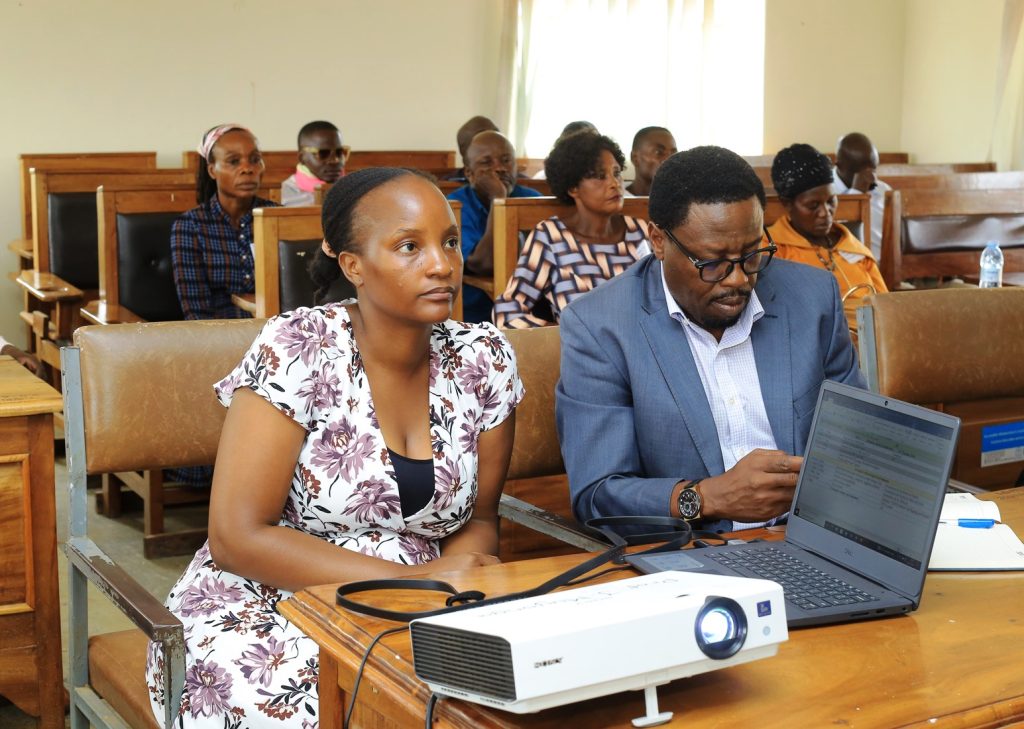
Ms. Nankya Jane, a coffee and banana farmer Semuto Sub County, Nakaseke District, the irrigation skills acquired through the project have greatly improved her farm. “The place where I do my farming was so dry, and this, in many cases, affected my yields. Through VEDCO, we were taken to the Makerere University Agricultural Research Institute Kabanyolo (MUARIK) where we acquired skills on proper irrigation and value addition using technologies developed by the FoodLAND Project. If I had acquired these skills when I started 7 years ago, I would be very far. My appeal is that you continue offering training to us. There is a lot more that we need to learn.”
About the FoodLAND project
Launched in 2020, the main objective of the FoodLAND project was to develop, implement and validate innovative, scalable and sustainable technologies aimed at supporting the nutrition performance of local food systems in Africa, while strengthening agro-biodiversity and food diversity as well as diversity of healthy diets.
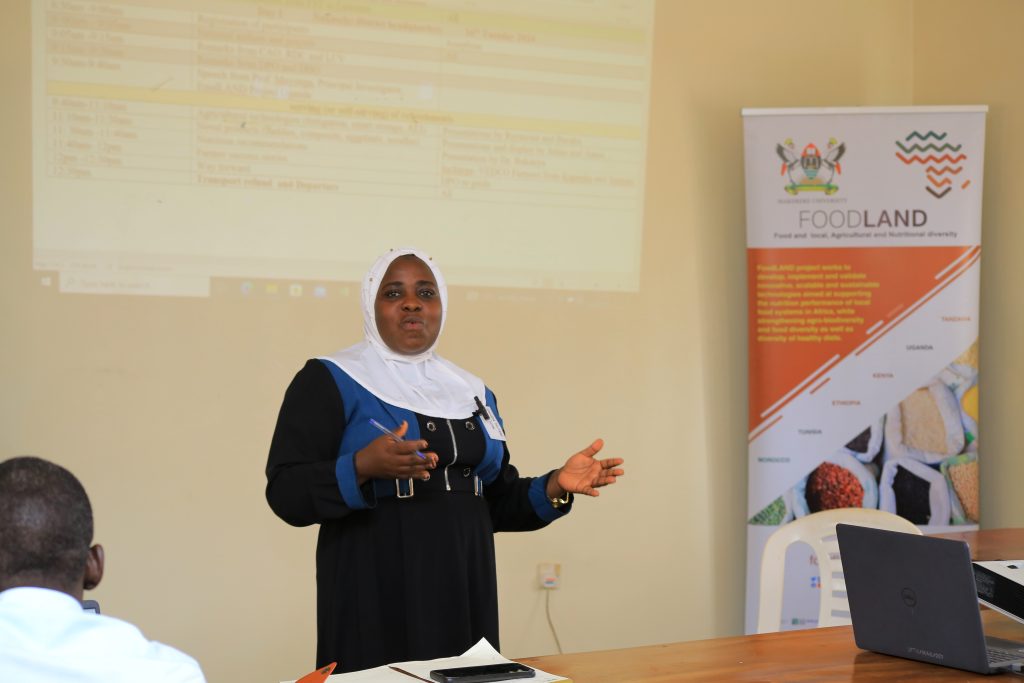
Funded to the tune of 7 million euro by the European Commission within the Horizon 2020 programme, and led by Alma Mater Studiorum – University of Bologna (Italy), the project committed to developing a range of innovations for local agriculture and aquaculture development, as well as to nudging consumers towards healthier eating behaviour in six African countries: Morocco, Tunisia, Ethiopia, Kenya, Uganda and Tanzania. The project specifically aimed to empower smallholder farmers and food operators, foster nutrition responsive and sustainable agro-biodiversity, reinforce the productivity and resilience of food supply chains, and create new market opportunities at both the local and global scales, thereby encouraging the flourishing of rural communities. The project was envisaged to create a network of 14 local Food Hubs—paired with 14 separate cities in these countries—that would mobilise relevant actors in rural, urban and peri-urban communities and serve as injection points for testing and introducing the innovations. The 28 partners that comprise the FoodLAND consortium (18 of them African institutions while the other 10 are European) were expected to work together to develop, implement and validate 12 technological innovations; which include organizational and technological innovations for both vegetable and fish farming and food processing systems, together with 17 novel local food products, ranging from fresh, dried and processed vegetables and fish to composite flours and therapeutic foods.
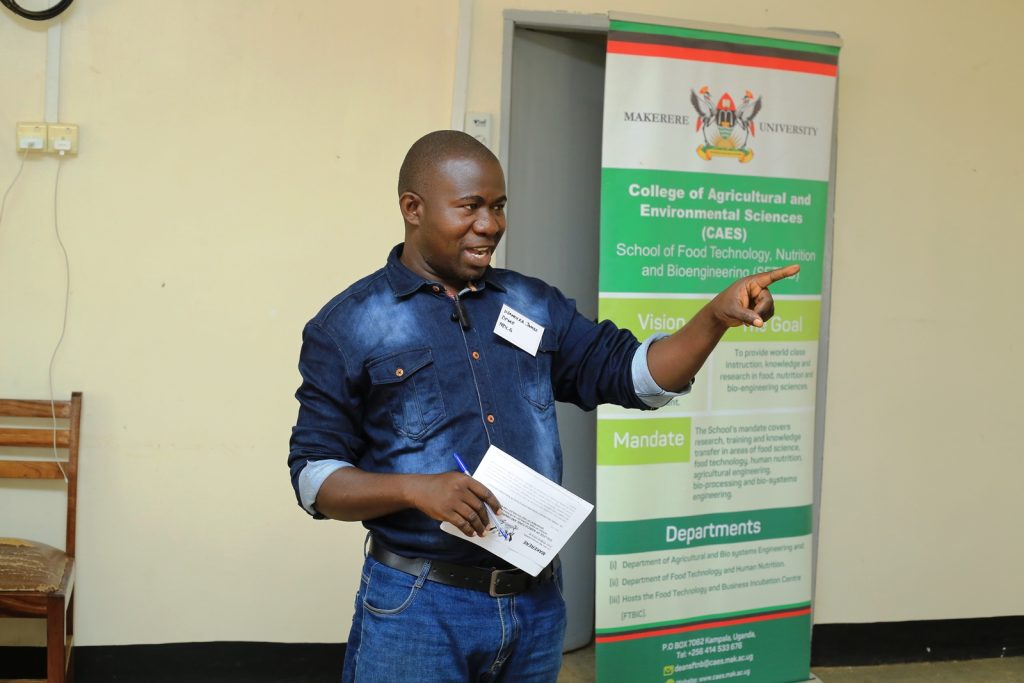
In Uganda, the project was implemented in 6 districts namely; Masaka, Nakaseke, Kamuli, Lwengo, Mukono and Wakiso, and was led by Prof. John Muyonga from the Department of Food Technology and Nutrition, College of Agriculture and Environmental Sciences (CAES), Makerere University. Other members on the project were: Prof. Johnny Mugisha from CAES; Dr. Cassius Aruho, Dr. Puline Nakyewa, Dr. Margaret Masette, Dr. Getrude Atukunda and Dr. Justus Rutaisire from NARO; Mr. Henry Nsereko from VEDCO; and Prof. Dorothy Nakimbugwe from Nutreal.
To date, the project team in Uganda has registered a number of achievements including;
- New nutrient enhanced food products – Noodles containing orange fleshed sweet potatoes and biofortified beans; instant flours containing orange fleshed sweet potatoes, biofortified beans and grain amaranth; and dry eggplant. Arrangements are in place for commercialization of the technologies by SMEs.
- Establishment of infrastructure at MUARIK for research and training on fertigation (irrigation that supplies water together with manure) and precision irrigation.
- Development of technology for smart cold storage of perishable foods such as fruits and vegetables. The technology allows for remote monitoring of temperature and relative humidity.
- Development of technology for rodent control in stores. This technology has been shown to be effective in preventing of rodent damage to food in stores.
- Promotion of agro-ecological intensification – Applying ecological principles to ensure sustainable agricultural production.
- Testing application of bio-based packaging of food
- Training of 100 farmers in different production technologies.
- Training of 3 M.Sc.
- Developing of nutrition guidelines for adults and the elderly.
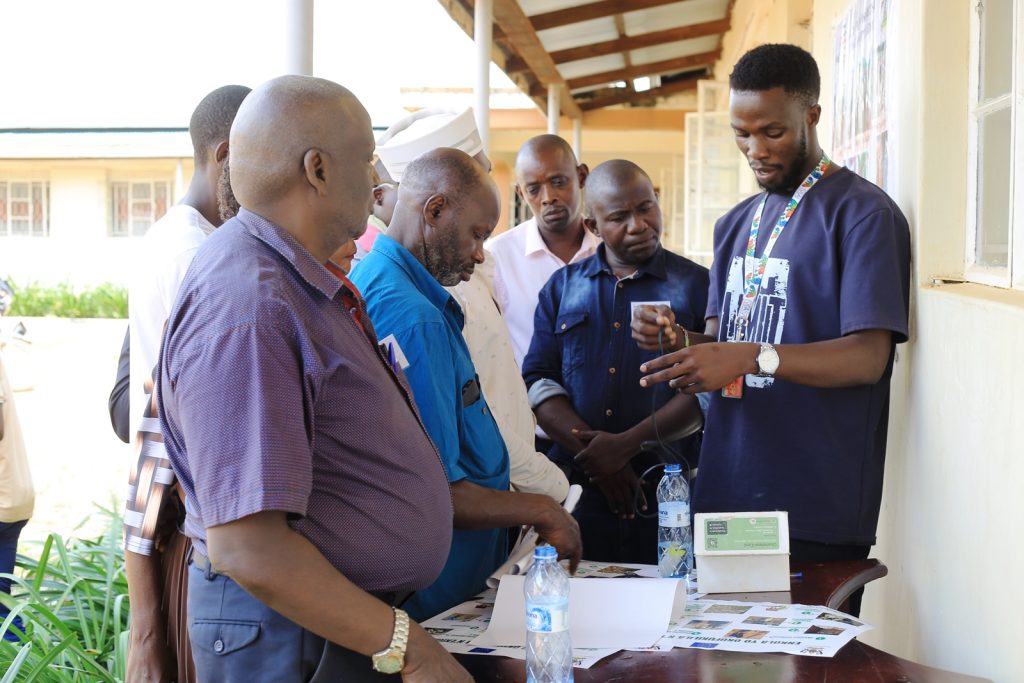
Dissemination of the project findings and achievements to farmers and district leaders in Nakaseke
On 16th July 2024, the project team held a dissemination workshop for Nakaseke District leaders and farmers to sensitize them on different aspects including the research findings and recommendations for improved farming practices. Coordinated by Ms. Josephine Kisakye, and conducted at Butalangu District Headquarters, the workshop was attended by representatives of farmer groups in Nakaseke as well as the district officials, including the CAO, DHO, DPMO and RDC. On behalf of the Project Coordinator, Dr Richard Bukenya, also a member of staff in the Department of Food Technology and Nutrition briefed the farmers on the findings of the project, highlighting the project objectives and progress made thus far, including the technologies, novel raw materials, ingredients and food products developed. Under the project, a number of technologies for smart farming have been developed and are being tested. These include: Digital tools for precision agriculture, farming management systems like the rodent control system as part of smart storage systems, and the food processing systems like the solar drier.
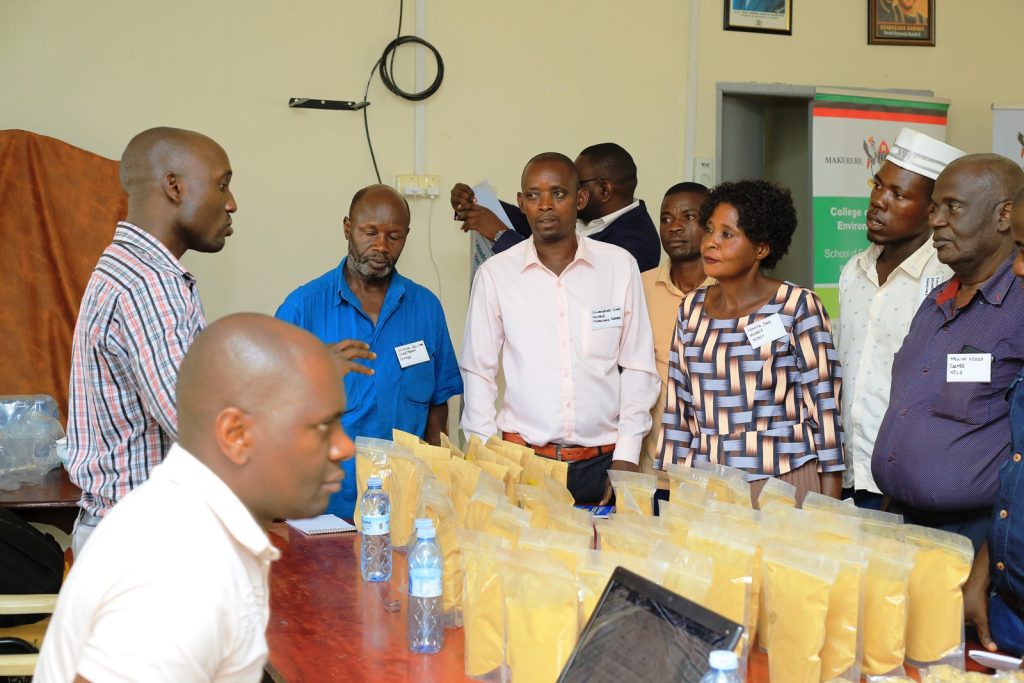
During the workshop, Mr. Barak Price, a student on the project sensitized participants on the rodent control system. He also trained the farmers on precision irrigation/fertigation. The farmers were also taken through the processes of value addition. Ms. Josephine Kisakye, a researcher on the project discussed the nutrition recommendations developed by the project. In the course of the project activities, it was noted that diets in Uganda are mainly composed of starchy staples, especially cereals, roots, tubers and bananas, with legumes constituting the main protein source. Intake of micronutrient-rich foods is low, despite various interventions to promote consumption of fruits, and vegetables. Ugandan adult and elderly population in both rural and urban areas were found to be at risk of under-nutrition and micro-nutrient deficiencies. Nutritional recommendations included: i) Daily consumption of locally available fruits and vegetables, whole starchy staples, and protein-rich foods; including beans, peas, nuts, fish, eggs, and meat; ii) Limiting the consumption of fried foods, salt, alcohol, and sweetened beverages; iii) Hydrate with fluids, preferably water; Regular engagement in moderate-intensity physical activity like brisk walking, digging, swimming, aerobics, and cycling; vi) Undertaking medical examination at intervals of no longer than 6 months to facilitate timely detection and treatment of ailments like diabetes, hypertension, high plasma cholesterol and cancers.
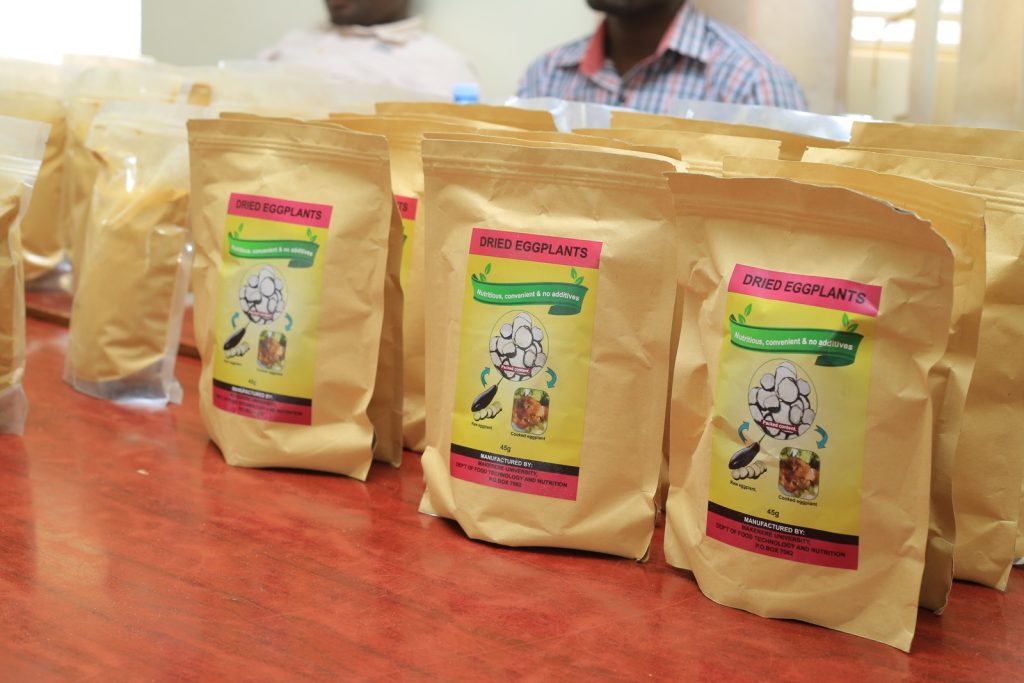
Appreciation by the District officials
Butalangu Town Clerk, Ms. Rashida Mutebi on behalf of the Chief Administrative Officer appreciated the project for reaching out and working with the local communities to improve their livelihoods. “The trainings on value addition will go a long way in saving our farmers losses,” she noted, calling for resilience and cooperation amongst the farmers. “It is important that you work together. Always share best practices if you are to improve yourselves and gain more from farming. I also implore you to always keep records of your farming activities.”
In his remarks, Nakaseke District Health Officer, Dr Alija Simon noted that the challenge of non-communicable diseases was on the raise due to poor feeding habits. He expressed gratitude to the project for incorporating the important aspect of nutrition in its research.
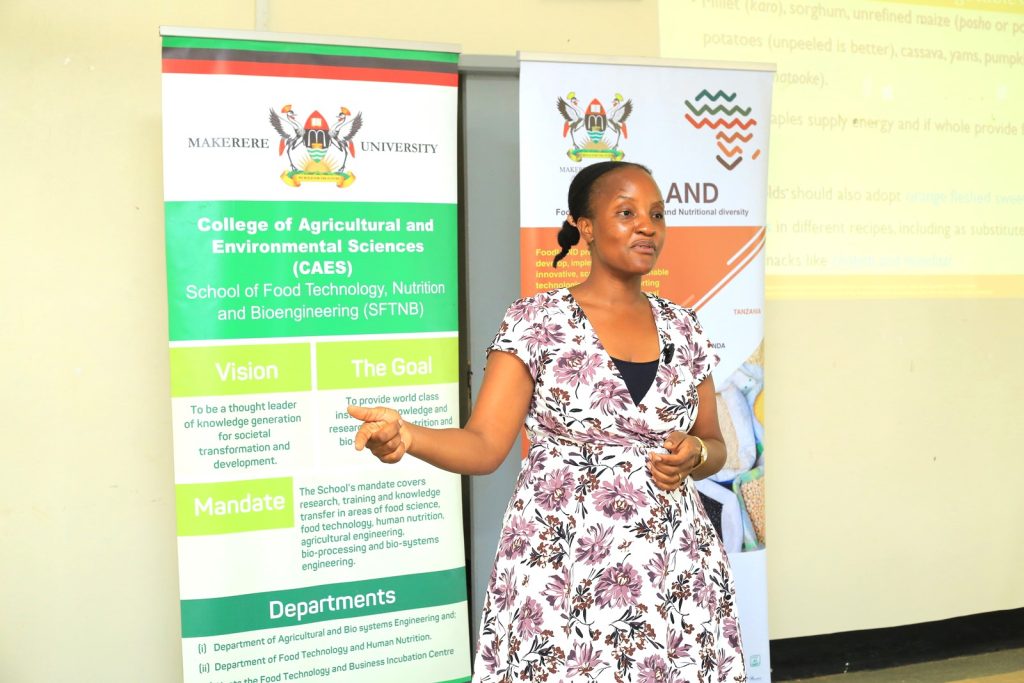
DPMO Wandera James appreciated the Government of Uganda for investing in farming. He also appreciated the project team for the trainings offered to the farmers in the district, noting that value addition was a key area of focus in the Parish Development Model. “Nakaseke is now becoming a food hub. I thank Makerere University for working with the communities. Initially, research was done but stopped in the shelves of the University. We are happy that you are now working with the communities to identify solutions to the challenges undermining agriculture. Research should be conducted for development.”
Addressing participants, the Assistant RDC, Nakaseke District, Mr. Muhoozi Michael appreciated Makerere University, specifically the FoodLAND Project, calling for more innervations to support farmers in the district out of poverty. He implored the farmer groups to form a cooperative, noting that the latter forms a better platform for soliciting support.
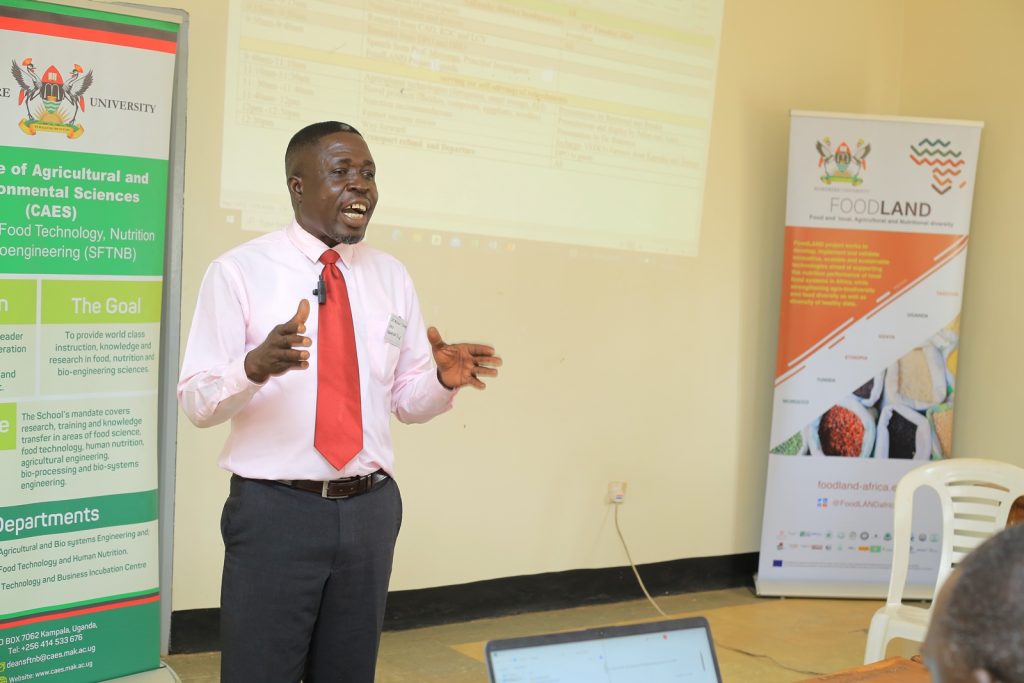
A similar dissemination exercise was conducted in Kamuli District in Eastern Uganda.
More photos from the FoodLAND project Nakaseke Dissemination
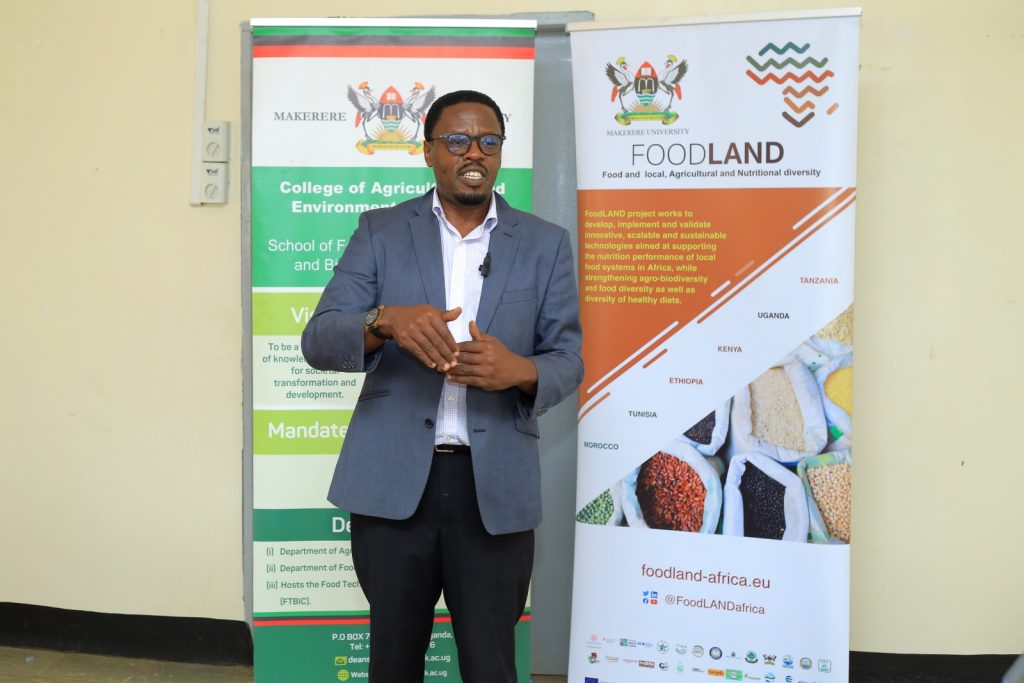
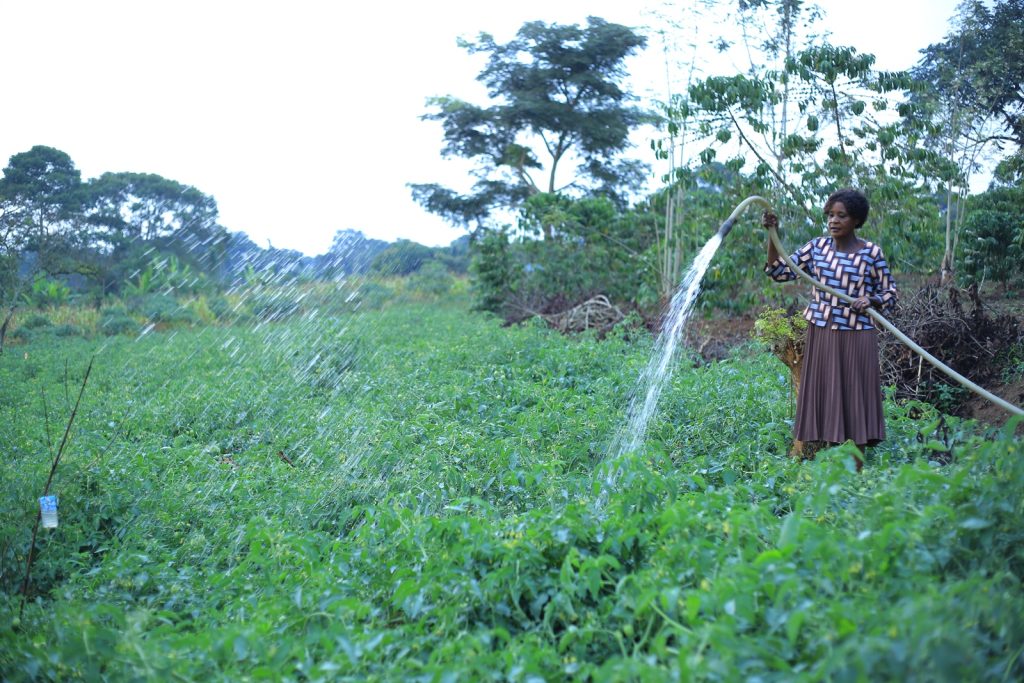
Agriculture & Environment
Mak, Oregon State University Sign Cooperation Agreement
Published
1 week agoon
July 19, 2024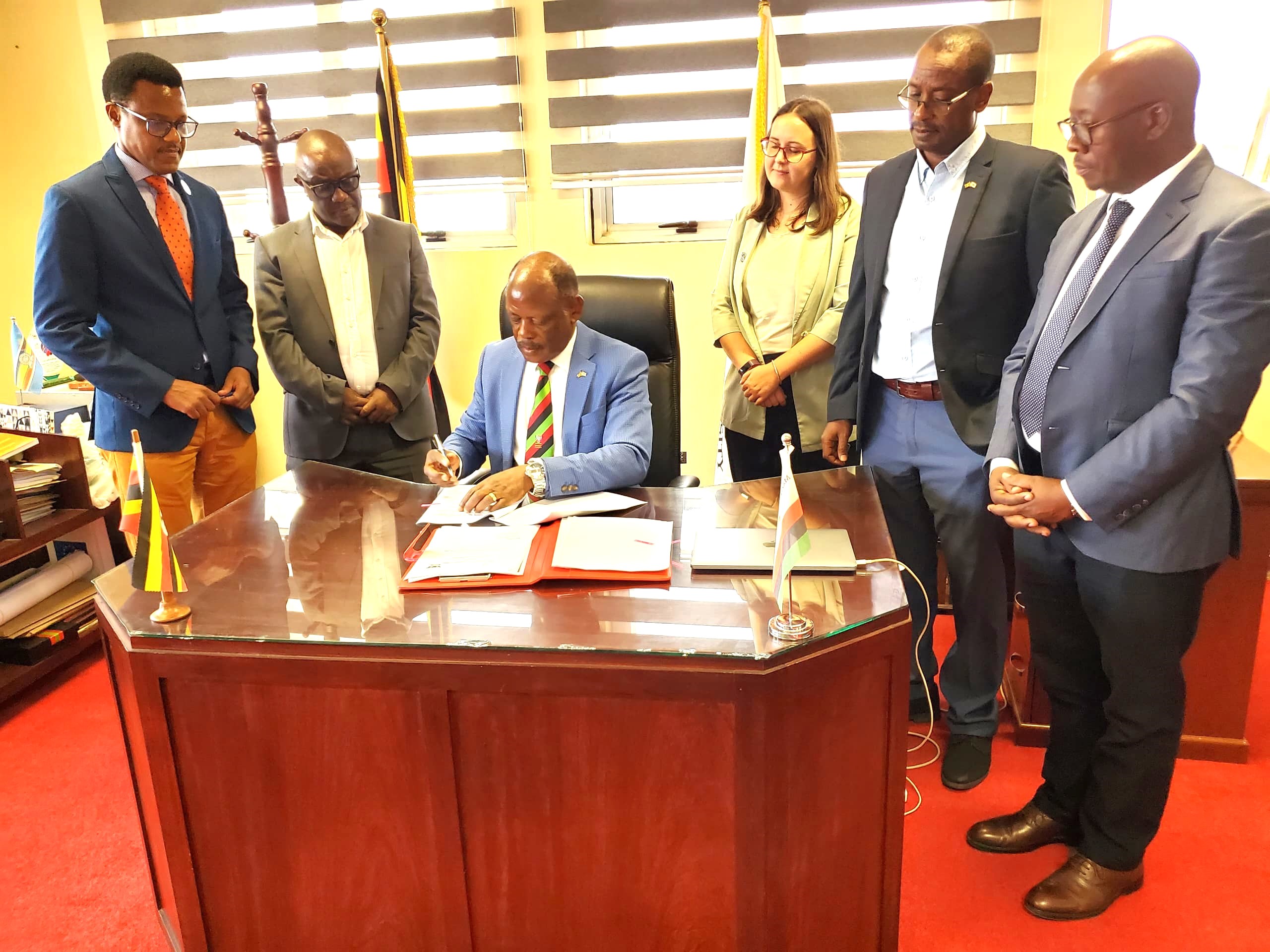
Makerere University Vice Chancellor, Prof. Barnabas Nawangwe on 19th July 2024 endorsed the Memorandum of Understanding between Makerere University and Oregon State University to collaborate in different aspects of academics. The MoU signing ceremony was witnessed by members of staff from the College of Agricultural and Environmental Sciences (CAES) namely; Dr Revocatus Twinomuhangi, Dean, School of Forestry, Environmental, and Geographical Sciences; Dr Lawrence Orikiriza Head, Department of Forestry, Biodiversity and Tourism; and Prof. Jim Ayorekire from the same department. Oregon State University was represented by Dr Ian E. Munanura, an Associate Professor in the Department of Forest Ecosystems and Society, College of Forestry, and Ms. Racheal Fahrenbach, Manager International Programs at the College of Forestry. At Makerere, the MoU will be implemented by the Department of Forestry, Biodiversity and Tourism under the leadership of Prof. Jim Ayorekire. At Oregon State University, it will be implemented by the College of Forestry.
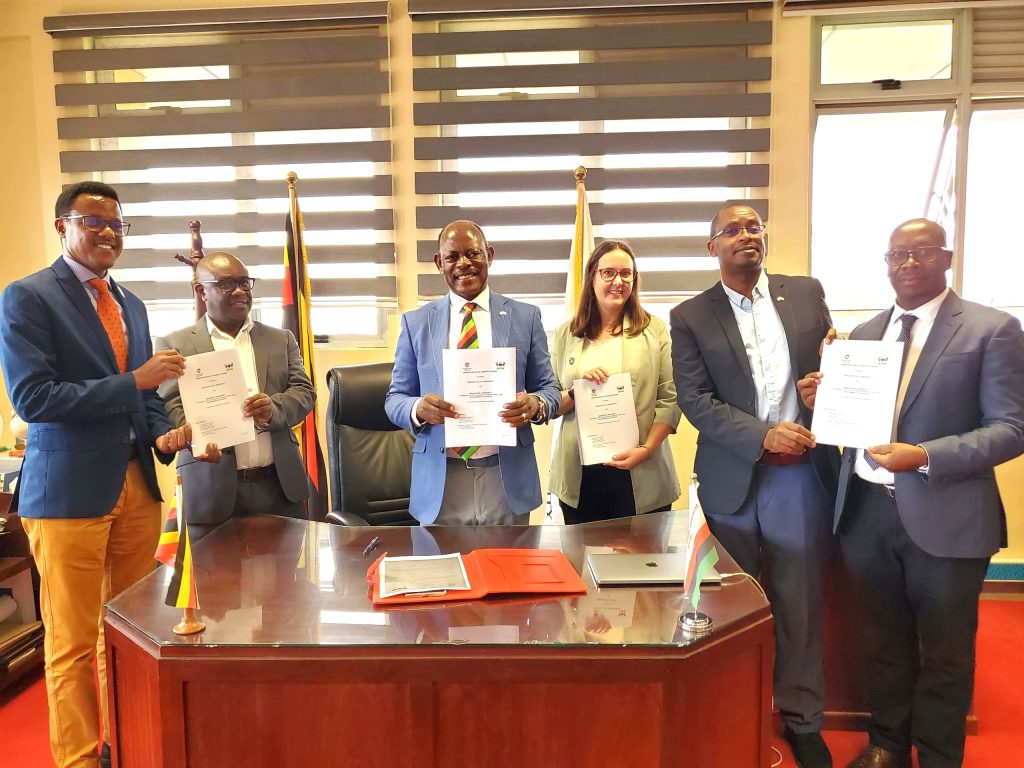
Under the MoU, the two institutions have agree to mutually promote the following programmes, based on their respective academic and educational needs; i) Exchange of scholars and faculty staff, ii) Exchange of undergraduate and graduate students for research and study, iii) Exchange of academic information and materials, iv) Joint research activities and publications, v) Participation in conferences and academic meetings vi) Joint running of short-term academic programs, vii) Resource mobilization in respect of areas of mutual interest, and any other areas which may promote their mutual interests.
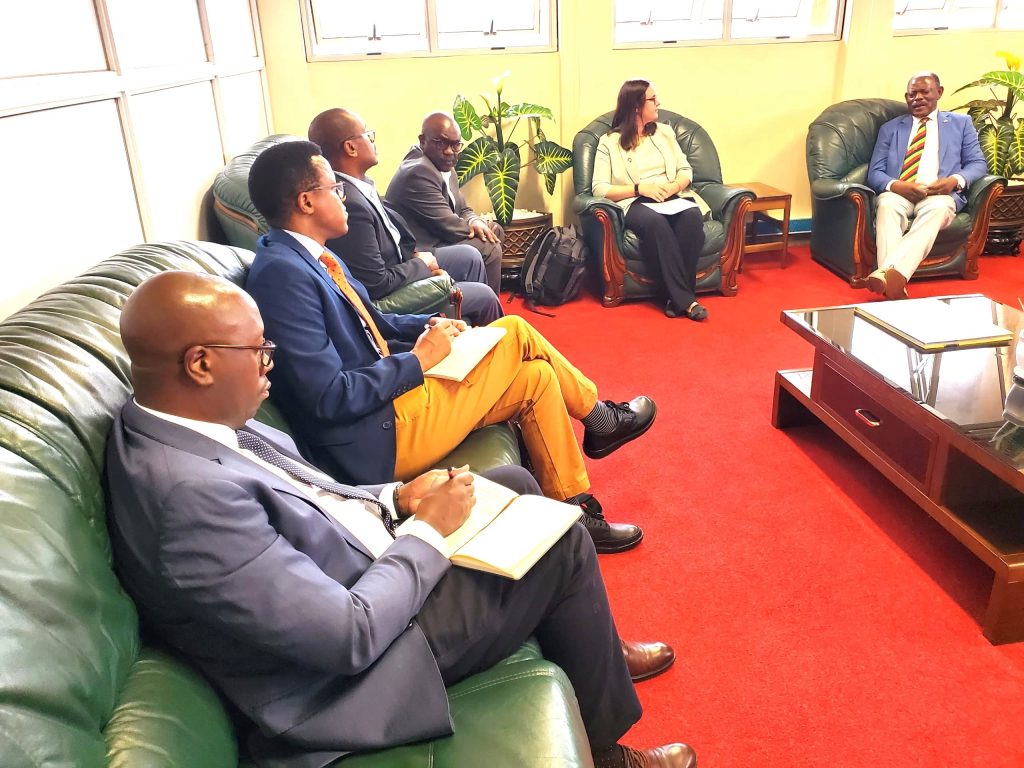
During the ceremony, the Vice Chancellor noted that programmes agreed on in the MoU were in line with the University’s Strategic Plan, and would greatly advance Makerere’s aspiration to become a research-led University. “As we move towards becoming a research-led University, we aim to contribute to the realization of Agenda 2063 which seeks to have Africa produce at least one million PhDs as one of the measures to eradicate poverty from the continent. Partnerships like this will help us achieve our target, by building our supervision capacity,” he explained, pledging support towards the implementation of the MoU.
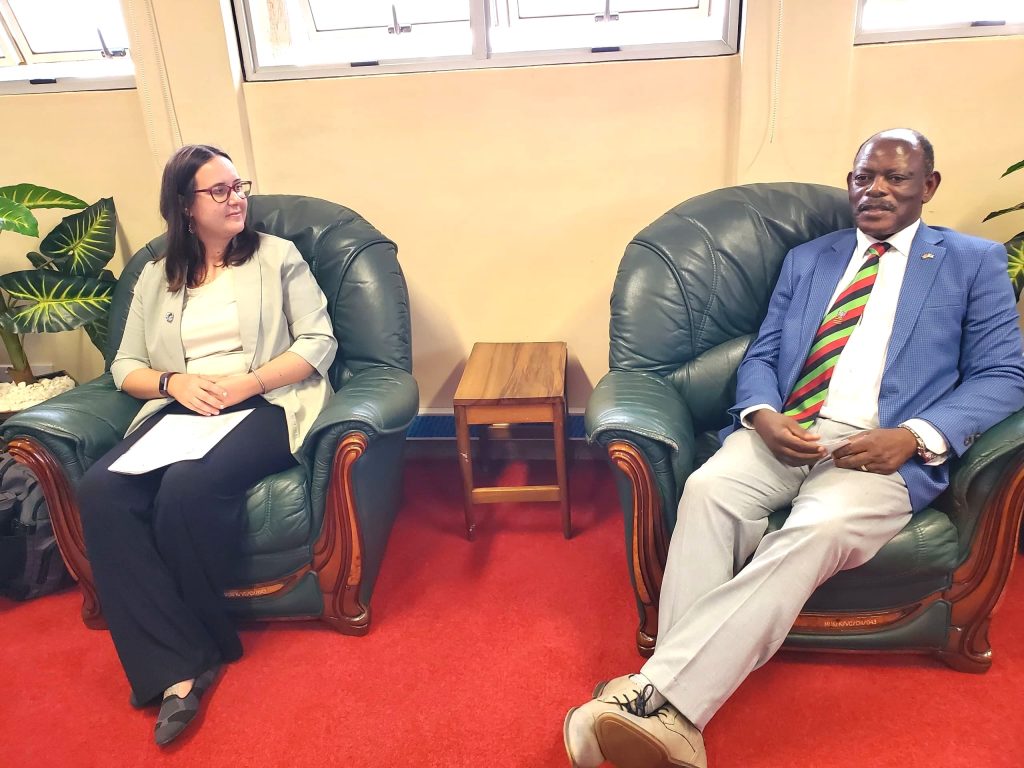
Dr Ian Munanura on behalf of Oregon State University expressed gratitude to work with Makerere, noting that the partnership would strengthen research capacity of the two institutions and support the mentorship of the next generation of scientists to deal with the challenges facing humanity including climate change and unemployment.
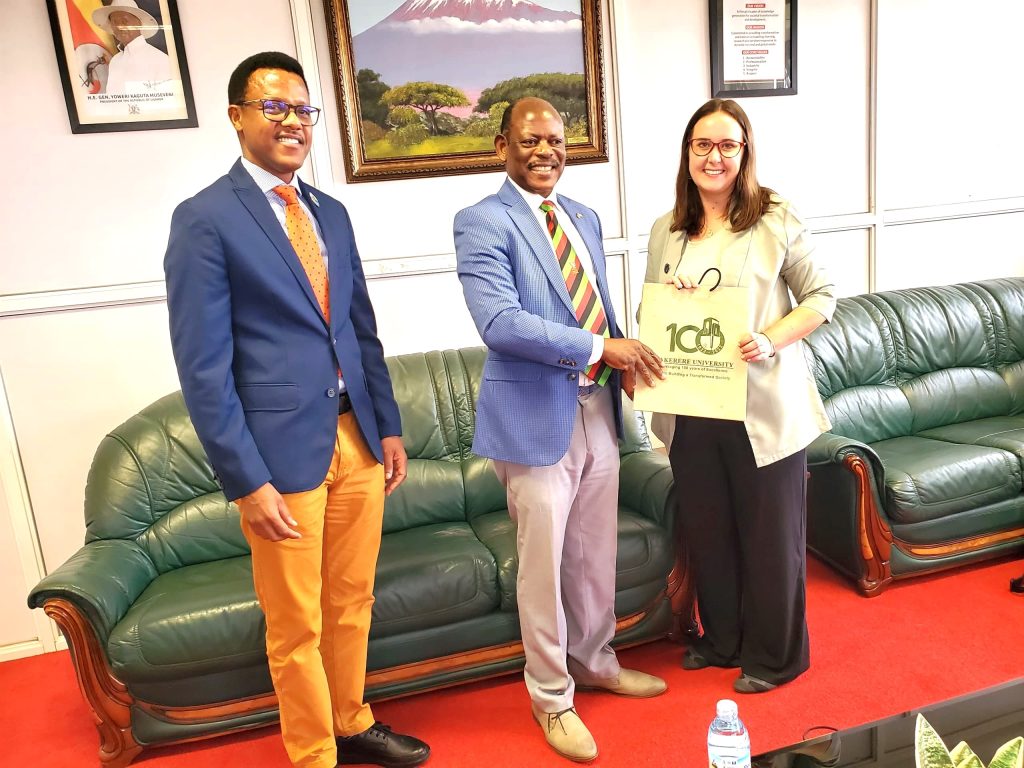
About the Department of Forestry, Biodiversity and Tourism at Makerere
The Department of Forestry, Biodiversity, and Tourism under the School of Forestry, Environmental, and Geographical Sciences at the College of Agricultural and Environmental Sciences, Makerere University offers programmes namely; Bachelor of Science in Conservation Forestry and Products Technology; Bachelor of Social and Entrepreneurial Forestry; and Master of Science in Agroforestry. Specific courses offered under those programmes include; Agroforestry Systems, Practices And Technologies; Drylands Agroforestry; Advanced Community Forestry; Gender Issues In Forestry; Advanced Biodiversity Conservation; Ecophysiology and Agronomy; Forestry For Rural Development; Natural Resource Management; Tropical Forest Ecology And Management; Forestry Business Management; Entrepreneurship In Forestry; Forestry And Food Security; Indigenous Knowledge in Resource Management; Biomass Energy Production and Conservation; Land Use Planning and Watershed Management; Forest Planning and Development; Forest Ecosystems and Livelihoods; and Forest Planning and Development. The Department also conducts a wide range of research in the fields highlighted above. The training offered exposes graduates from the department to a wide range of employment opportunities.
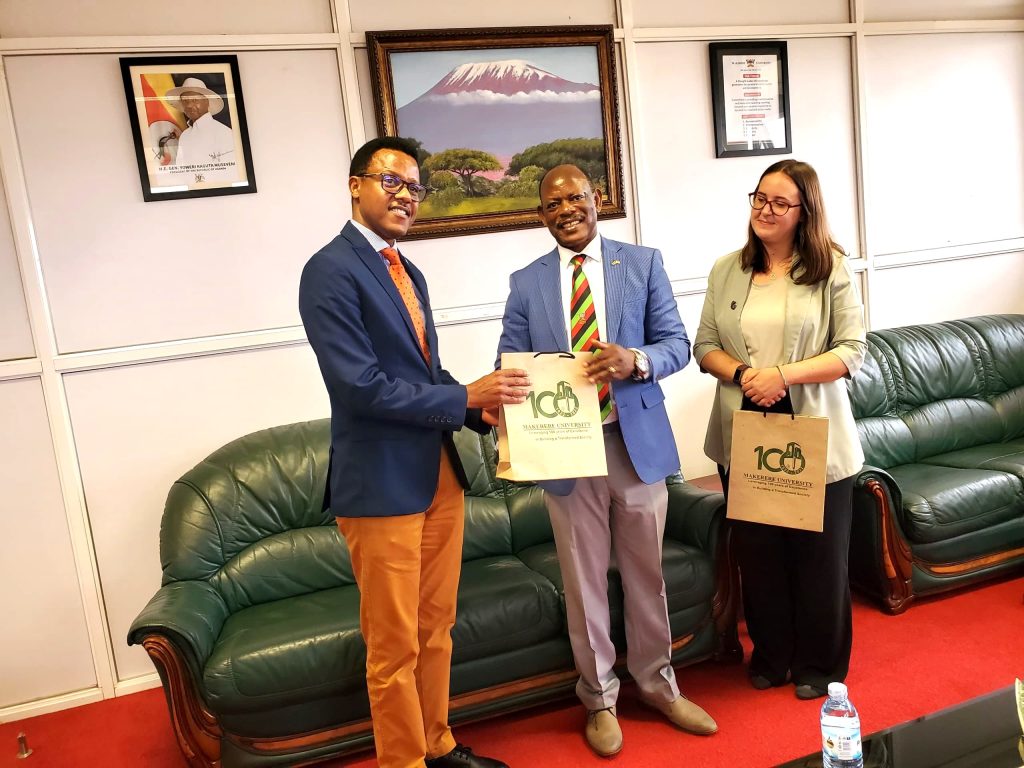
About the College of Forestry, Oregon State University
The Oregon State University College of Forestry is an internationally recognized leader that is transforming education, research and policy for managing and sustaining working forest ecosystems in the 21st century. The College offers a world-class education that provides a wide variety of opportunities following graduation. Academic excellence is the hallmark of the College of Forestry programs at Oregon State University. Ranked as one of the premier forestry schools in the world, students find a variety of programs that offer broad education, rigorous depth and professional focus. The College is known for its collaborative research approach to advance knowledge and bring solutions to issues facing forest landscapes and ecosystems. It takes pride in creating new and innovative approaches to help partners enhance people’s lives while improving the health of lands, businesses and vital ecosystems.
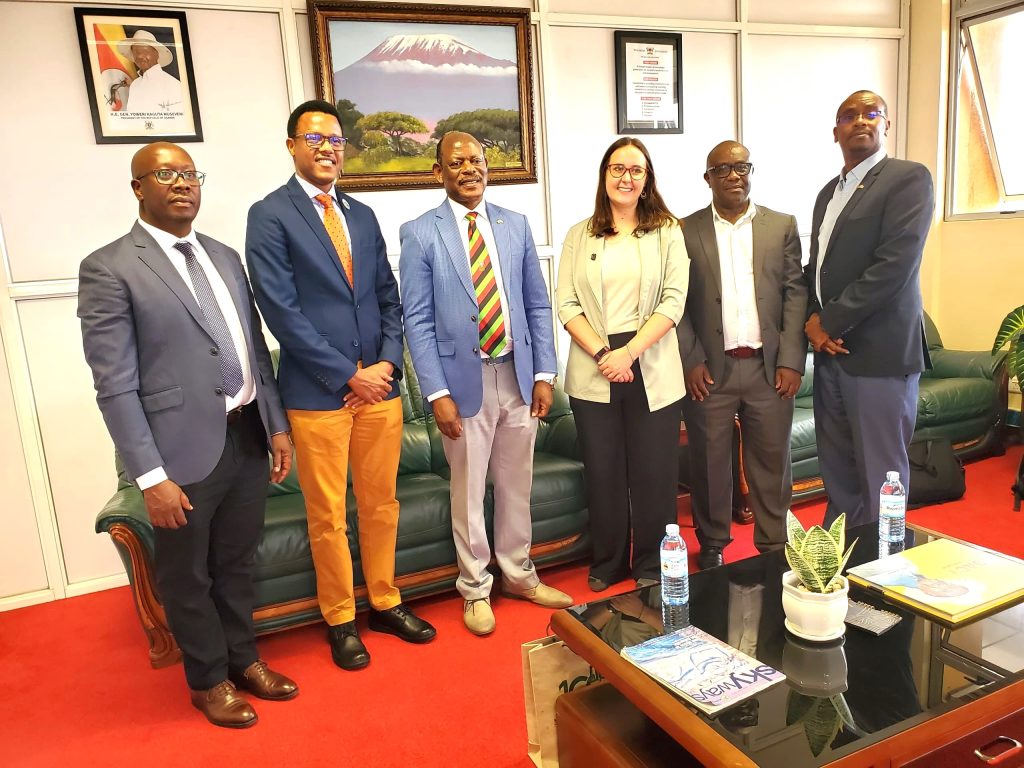
Agriculture & Environment
Call For Abstracts: 3rd International GORILLA Conference
Published
1 week agoon
July 19, 2024By
Mak Editor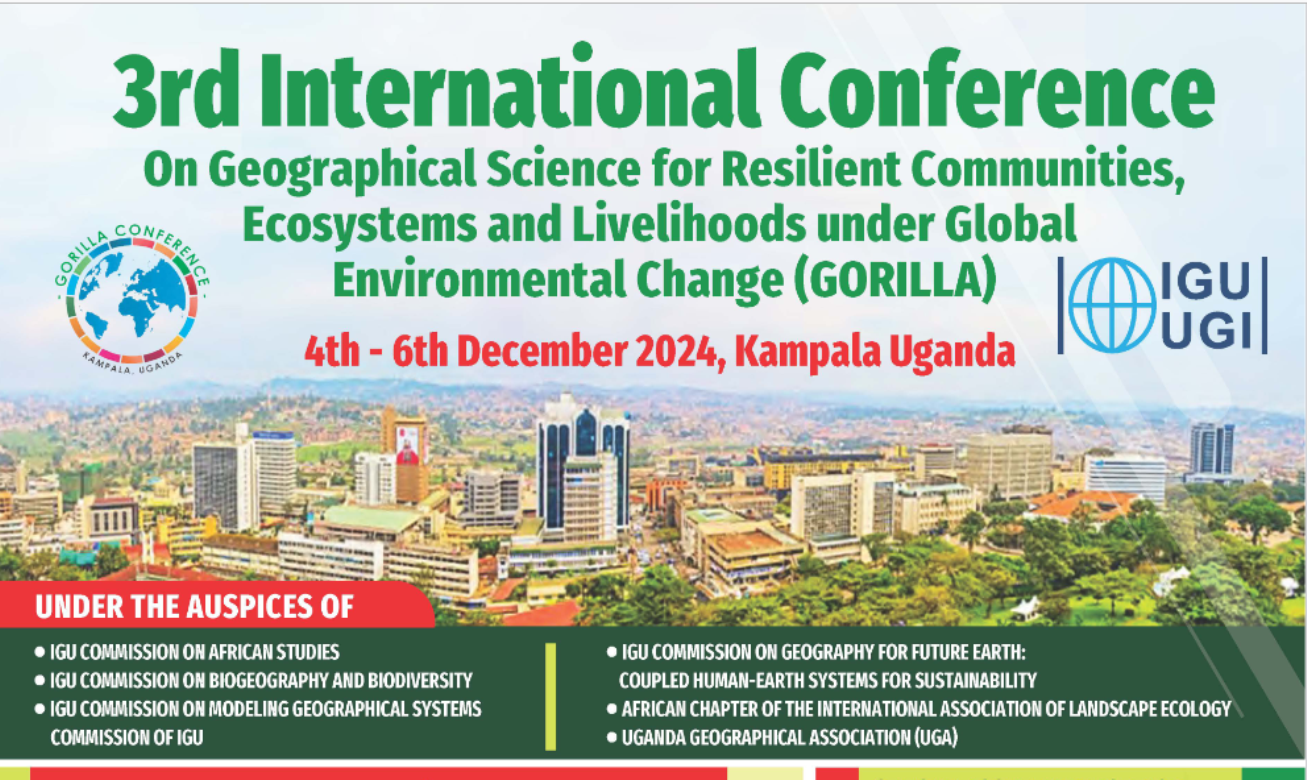
The 3rd International Conference on Geographical Science for Resilient Communities, Ecosystems and Livelihoods under Global Environmental Change (GORILLA) aims to take stock of emerging geographic oriented science and knowledge for advancing the 2030 Agenda for Sustainable Development. The GORILLA Conference seeks to harness geographic science to advance knowledge and foster positive change in understanding and addressing sustainable development challenges and opportunities at local, regional, national, and global scales. The specific objectives are to;
- Facilitate exchange of contemporary resilience building knowledge and innovations in a transdisciplinary manner.
- Enhance dialogue to bridge the science-policy-practice interface to address deficits that are limiting the resolution of pressing resilience challenges and shape policy agendas.
- Enhance capacities and capabilities of early career scientists through mentorship and dedicated training focused on the 2030 Agenda for Sustainable Development.
- Increase knowledge and scientific outputs from Sub-Saharan Africa by facilitating special issue publications
- Provide an opportunity for increased networking and beneficial partnerships from attendees with varied backgrounds and professional affiliations to address complex sustainable development challenges.
Important dates
- Conference Dates: 4th – 6th December 2024
- Deadline for Submission of Abstracts: 30th August 2024
- Latest Notification of Abstract Acceptance: 31st October 2024
Conference Topics
(a) Geographies of Climate Change, Climate Justice and Just Transition: Spaces and Patterns
(b) Biodiversity Informatics, Sustainable Ecosystems, Landscapes and People
(c) Green Growth and Transitions to Land Degradation Neutrality and Net Zero
(d) Water Governance and Watershed Resilience for Sustainable livelihoods
(e) Interconnected Geohazards and Disasters in a Changing World
(f) Polycrisis: Migration, Displacement, Conflict and Humanitarianism
(g) The changing Geography of Agrifood Systems
(h) Nature Based Solutions for Inclusive and Equitable Development
(i) Emerging and Novel Technologies for Societal Resilience
(j) Sustainable Cities and Urban Systems in SSA
(k) Geographies of Energy and Energy Transitions
(l) Environment and Health
Submission of Abstract
A 250-word abstract on the topics of the conference is required for those intending to make presentations. Both oral and poster presentations in the conference will be accepted. In addition, specific proposals for sessions may also be accepted. Abstracts will be submitted online at https://gorilla.mak.ac.ug.
Please see downloads for Conference Materials
Trending
-
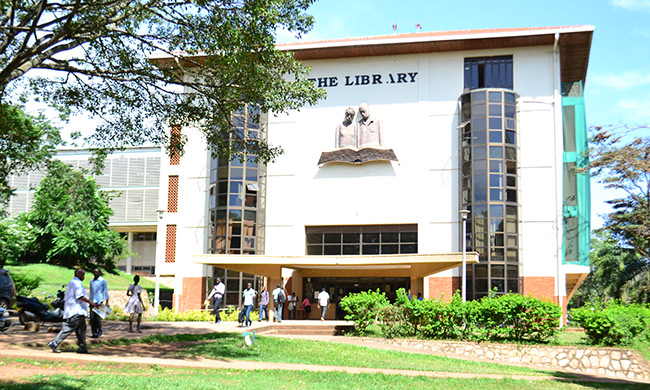
 General1 week ago
General1 week agoDiploma/Degree Holders Admission Lists 2024/25
-
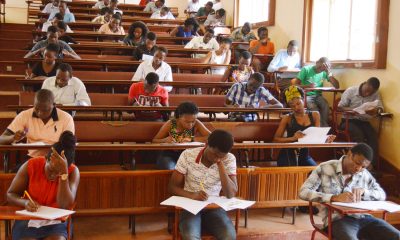
 General1 week ago
General1 week agoAdvert: Mature Age Entry Scheme – Private Sponsorship 2024/2025
-

 General5 days ago
General5 days agoProf. Buyinza Mukadasi Appointed Acting DVC Academic Affairs
-
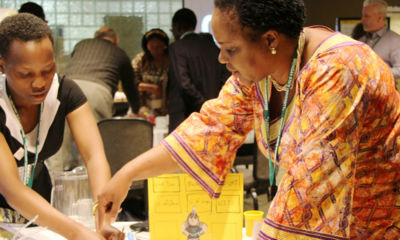
 General1 week ago
General1 week agoAfrican Futures Research Leadership Program: Cohort 5 – Call for Scholars
-
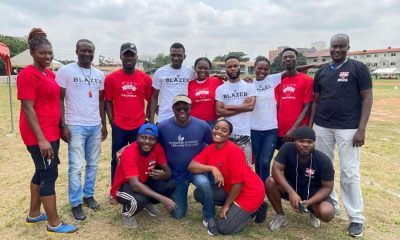
 General1 week ago
General1 week agoNow Open: CADFP Project Requests
